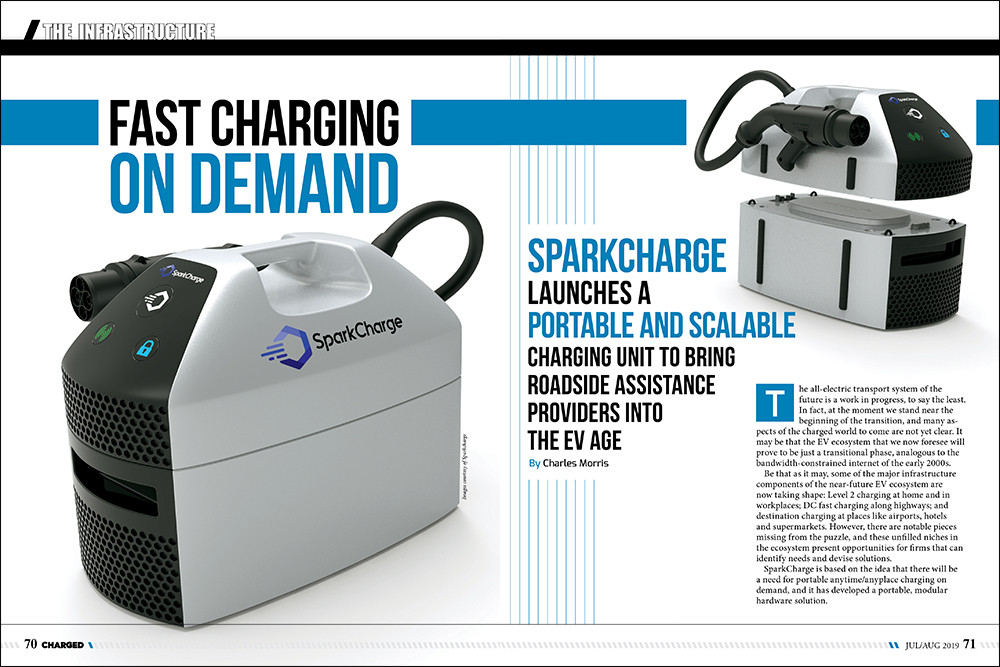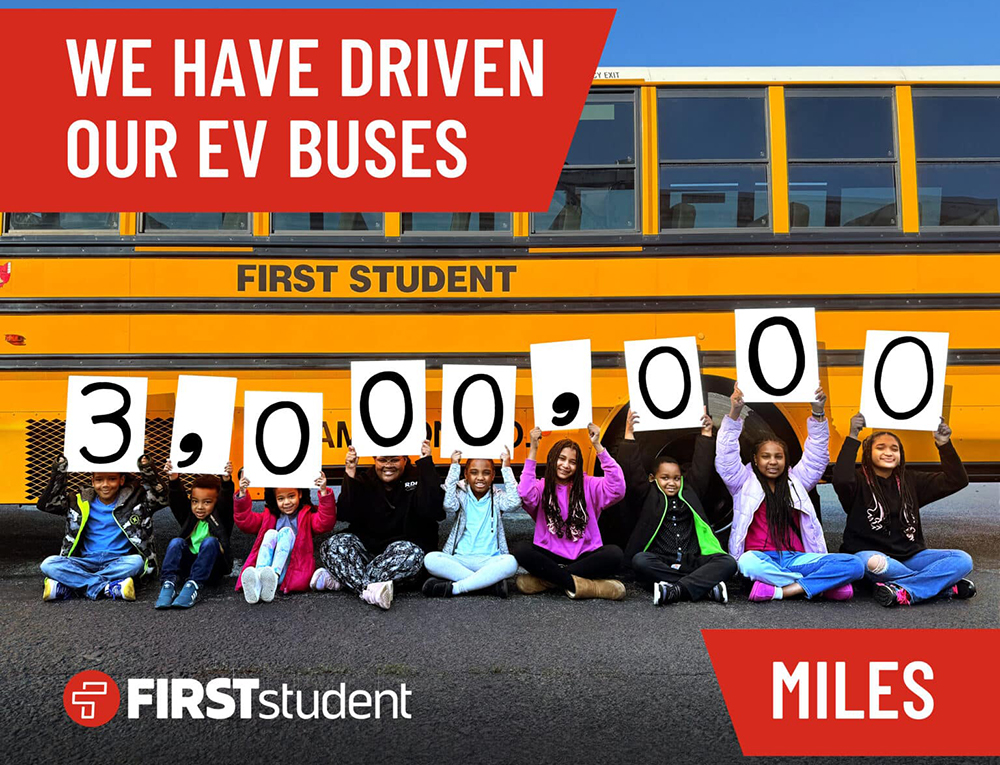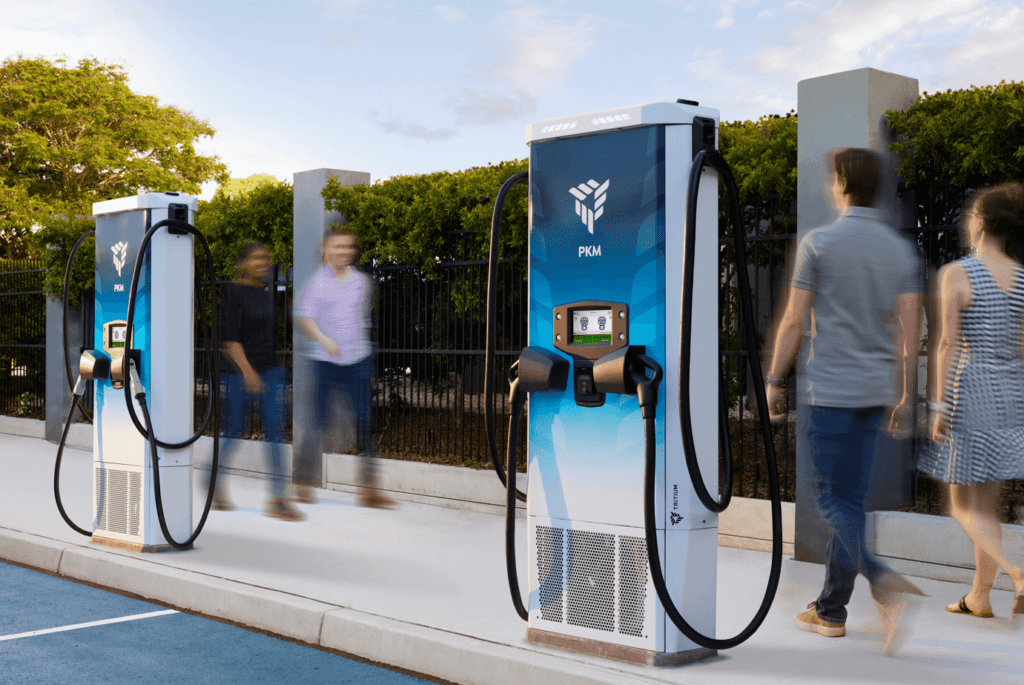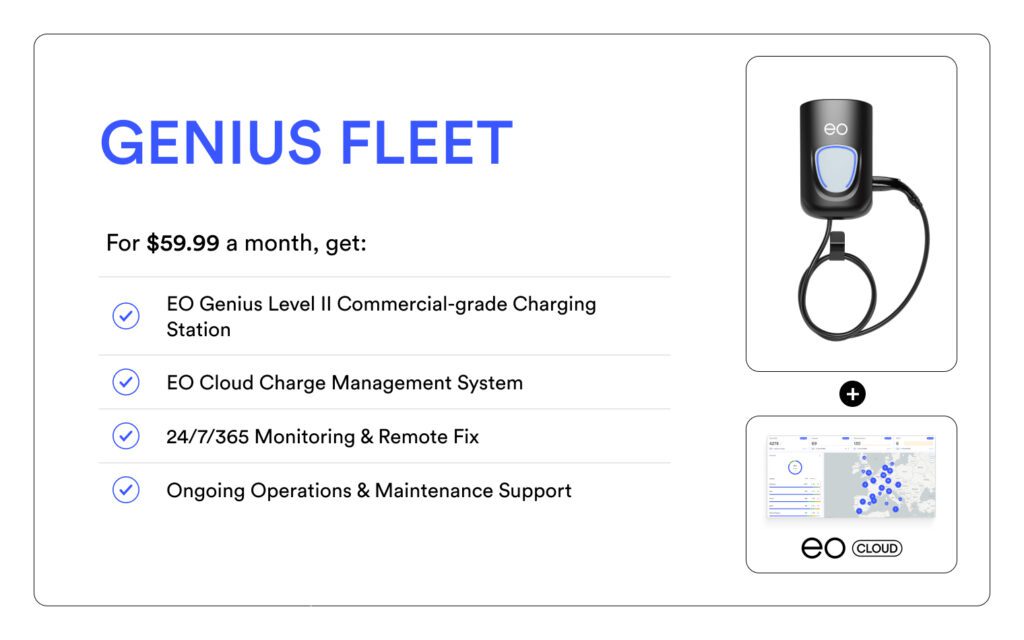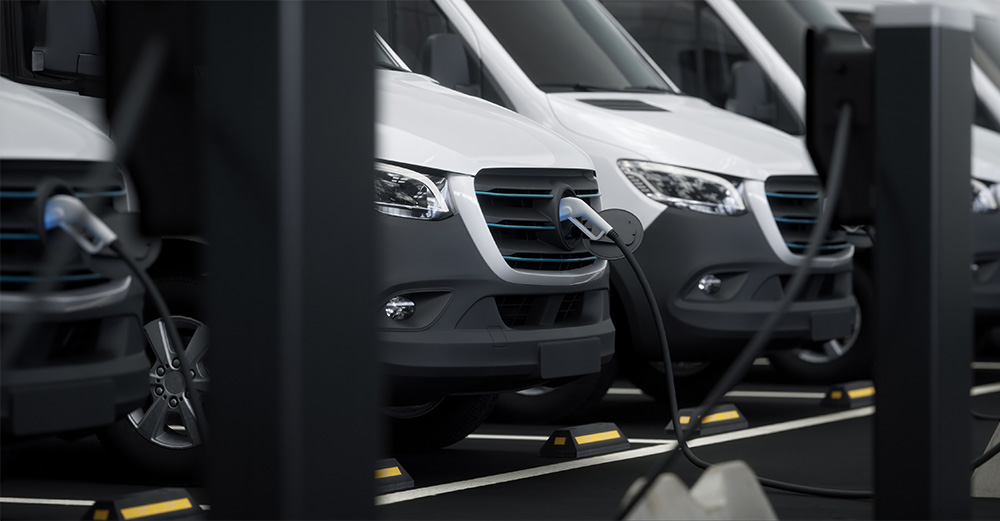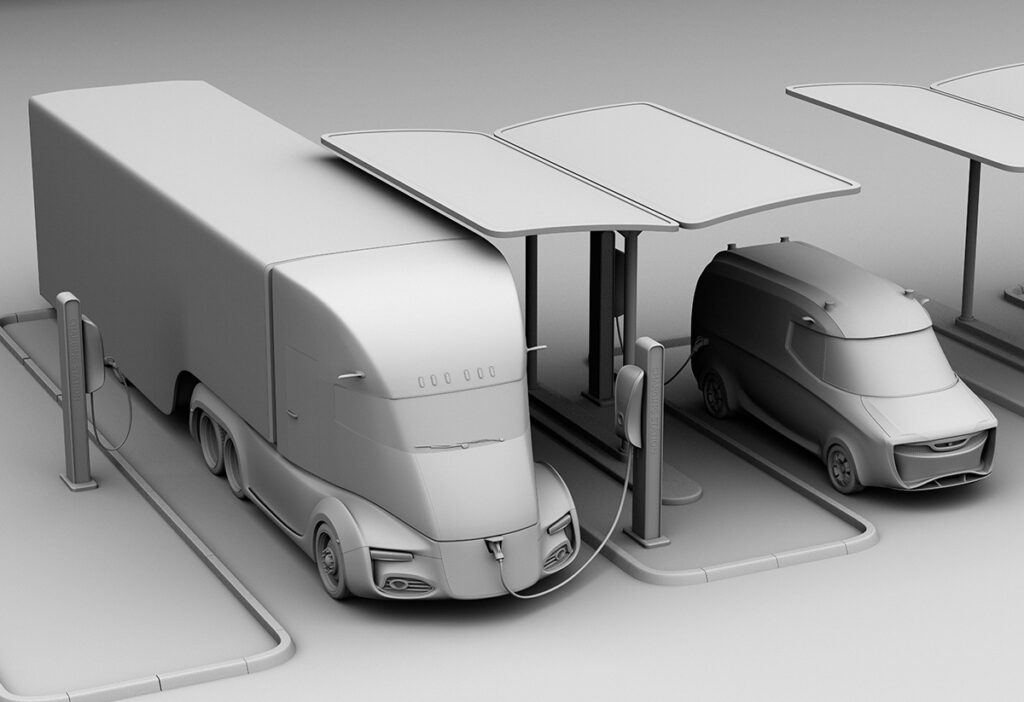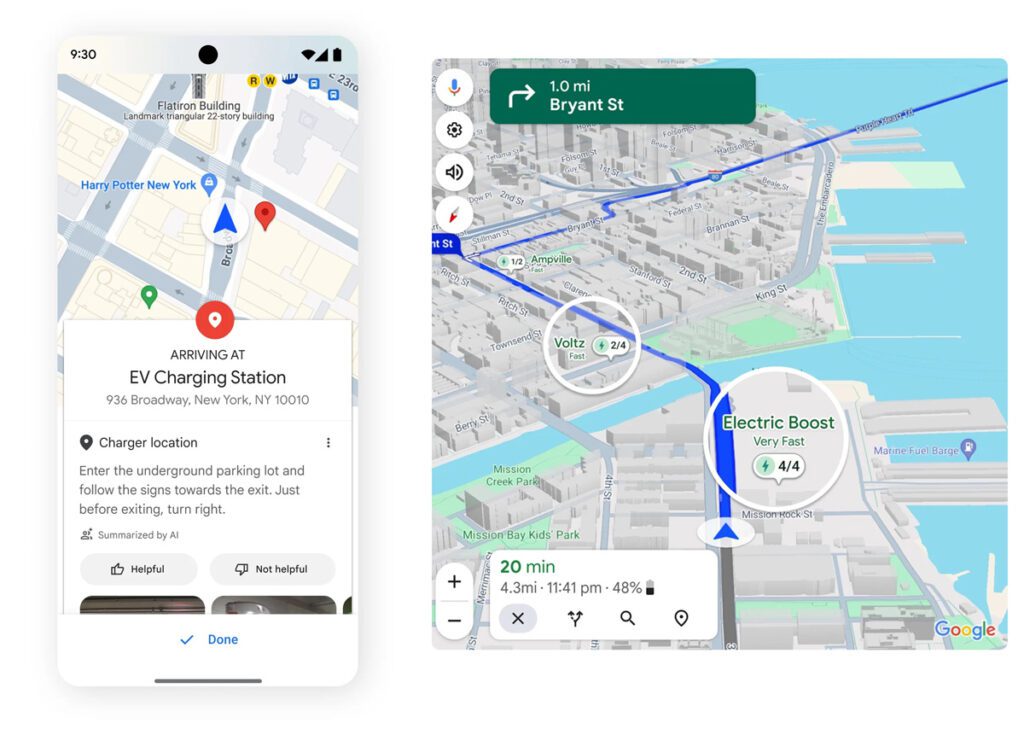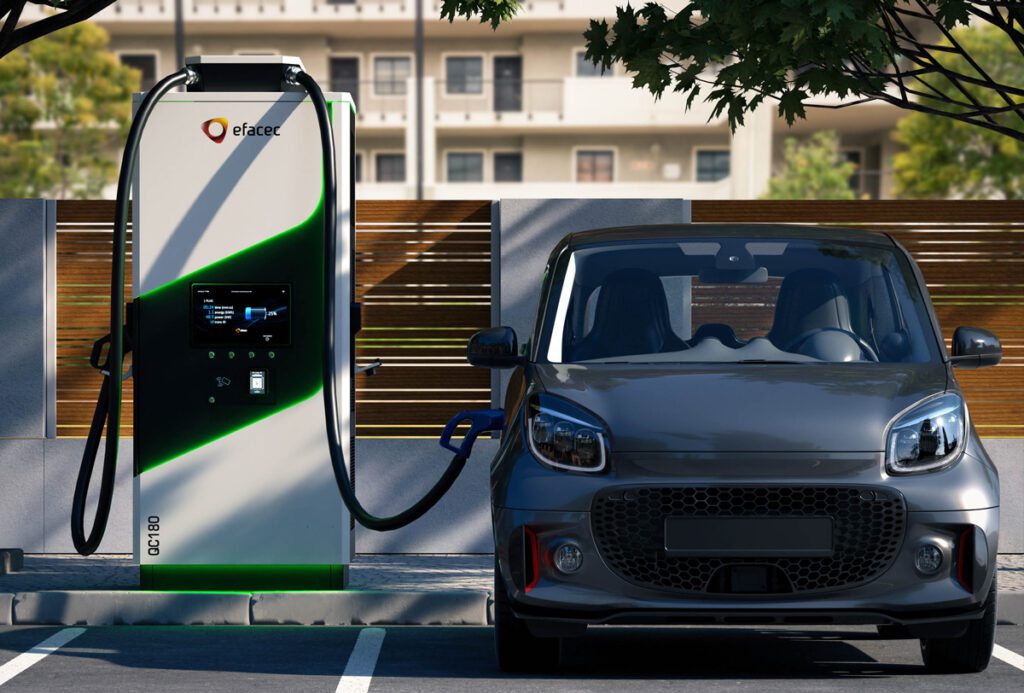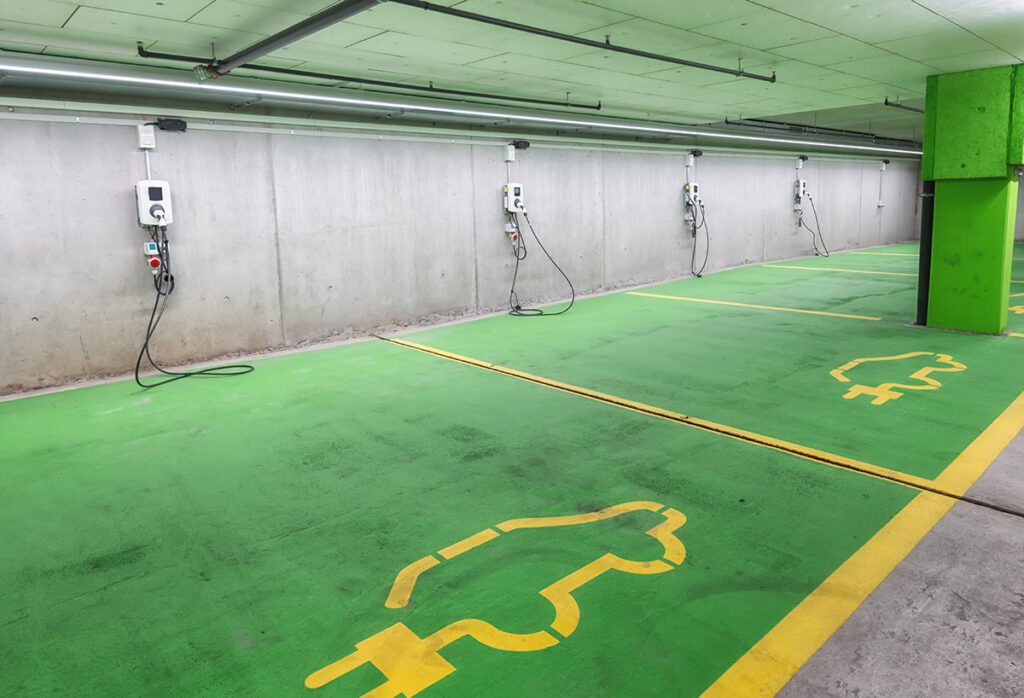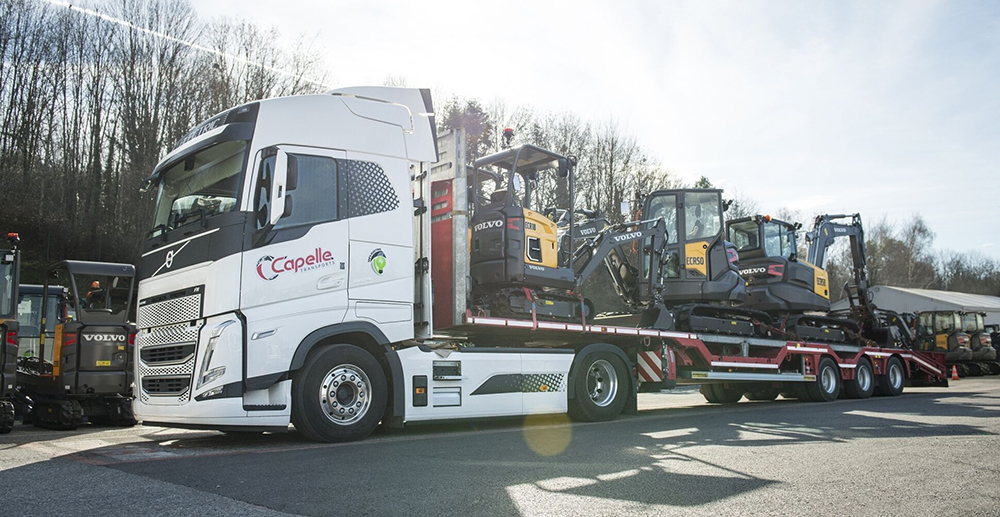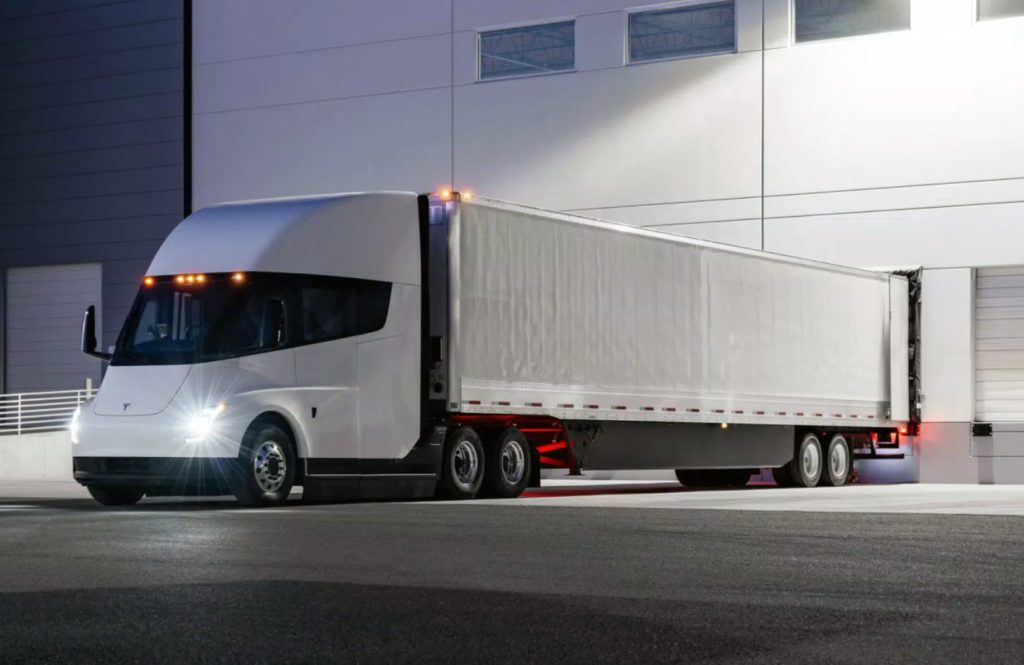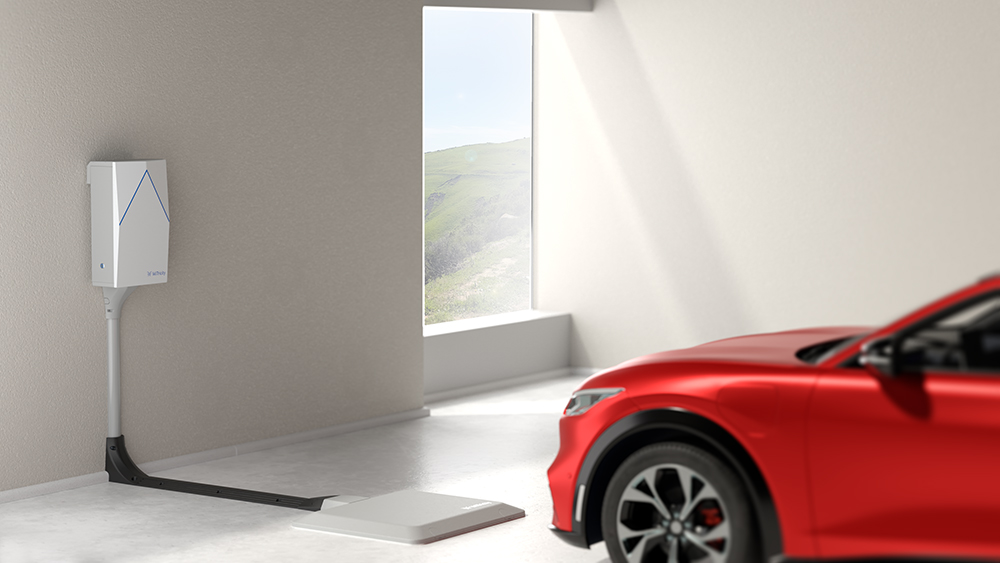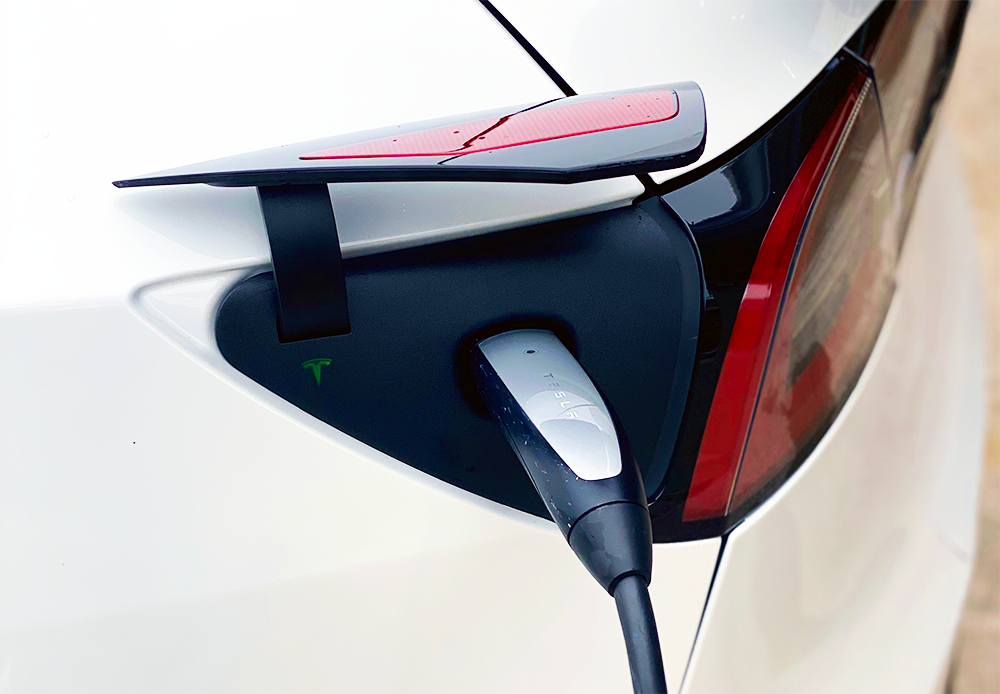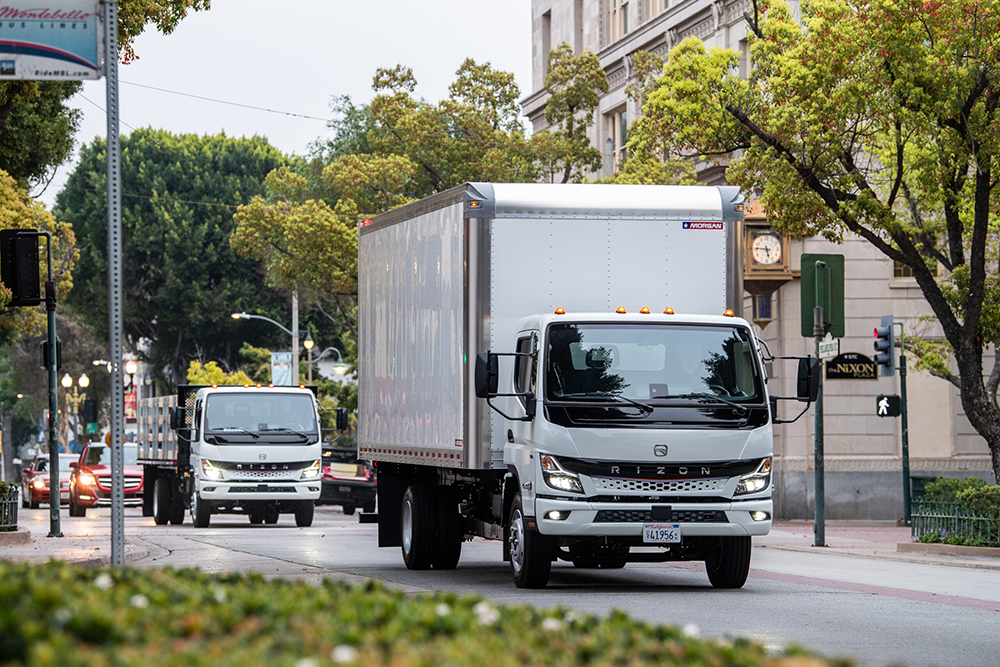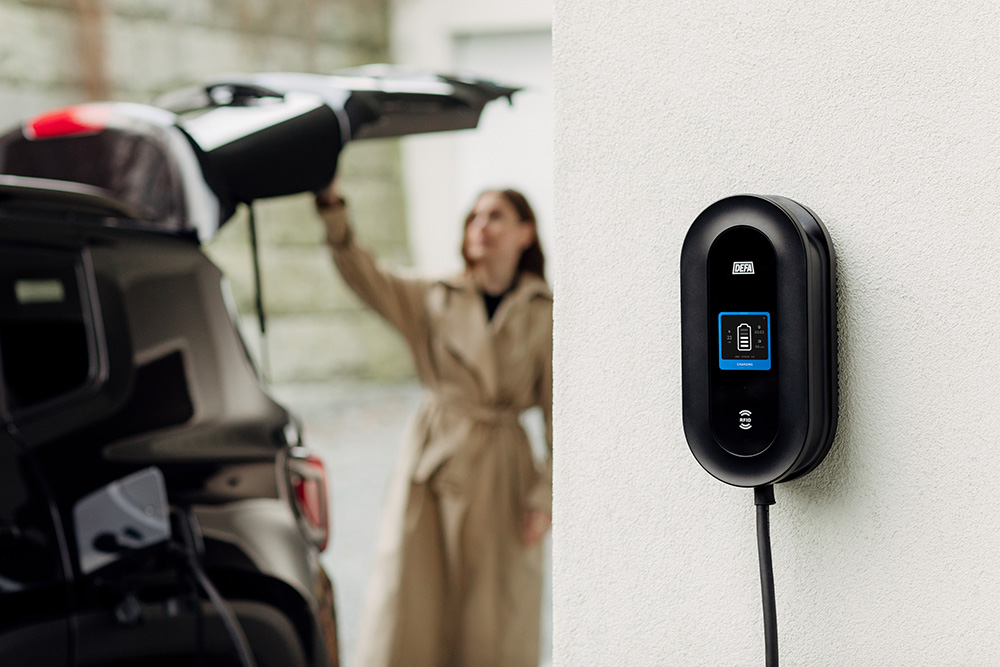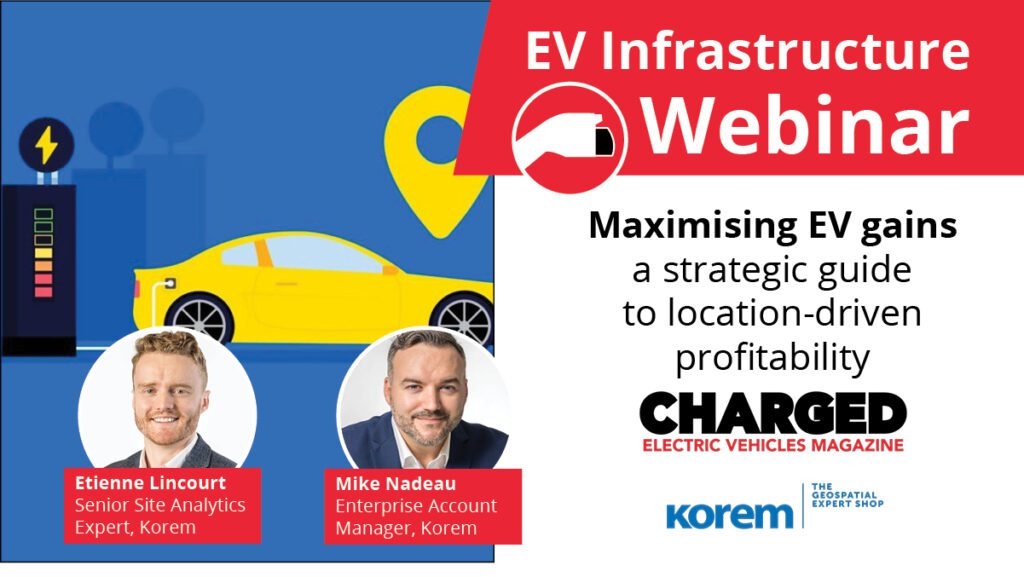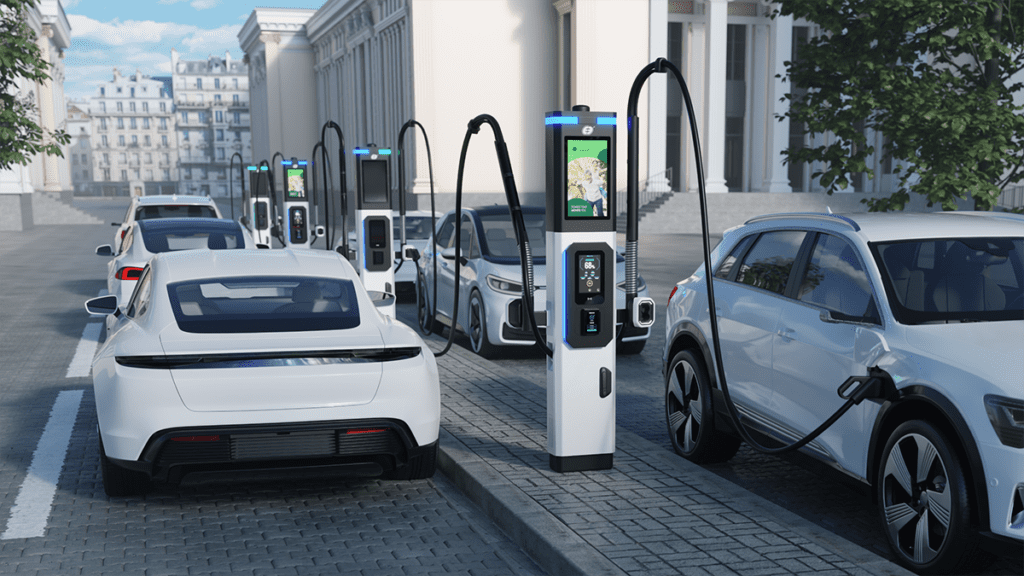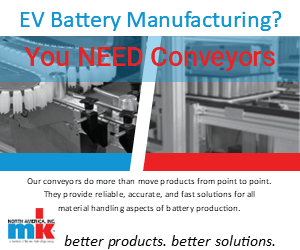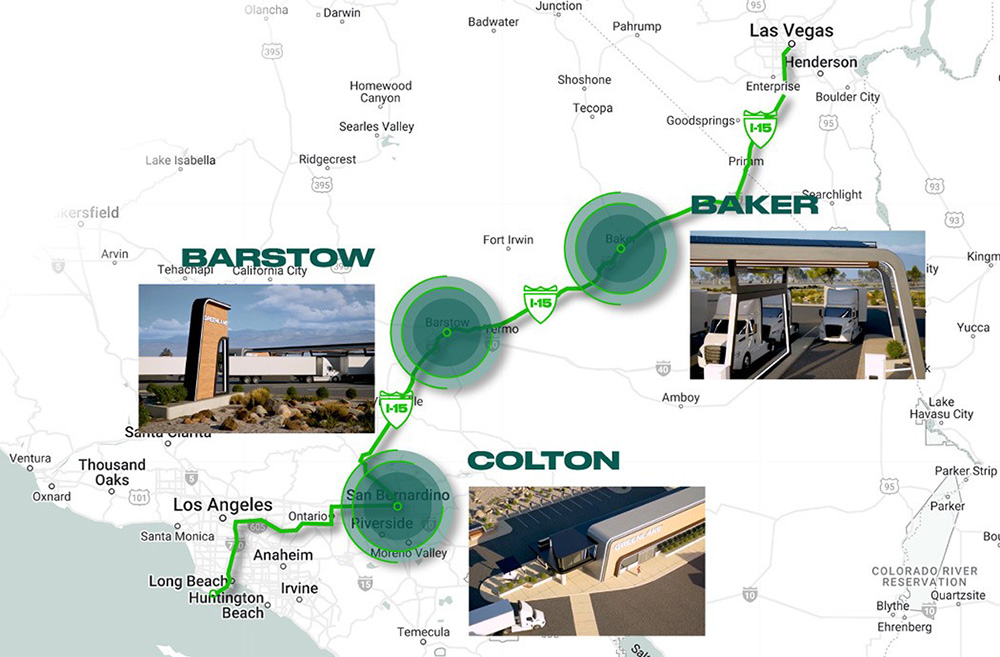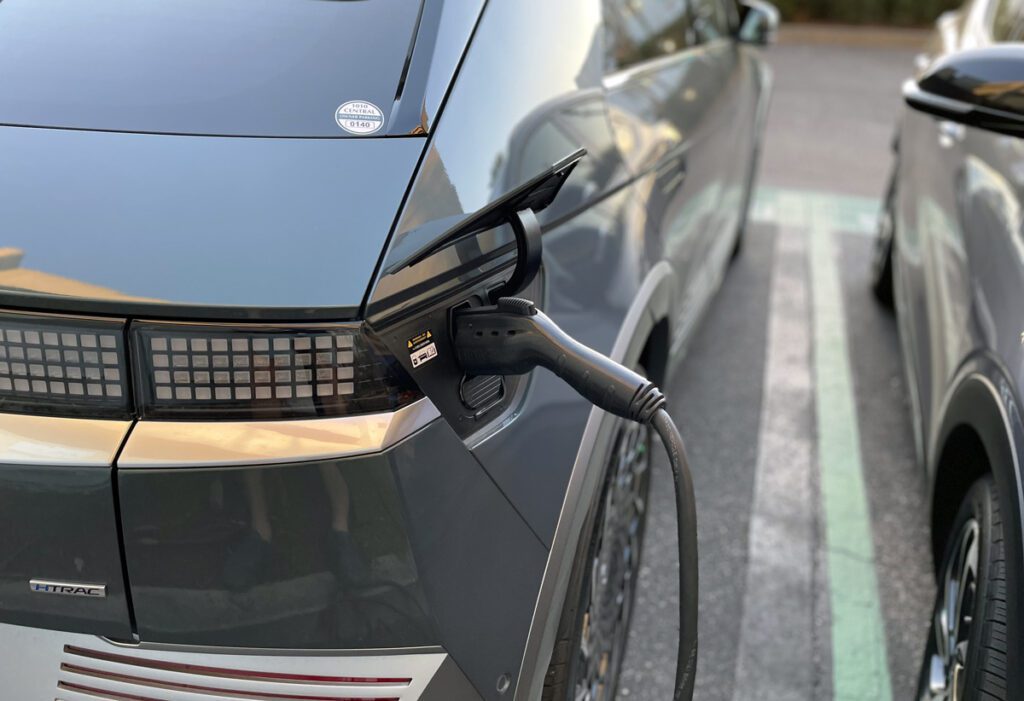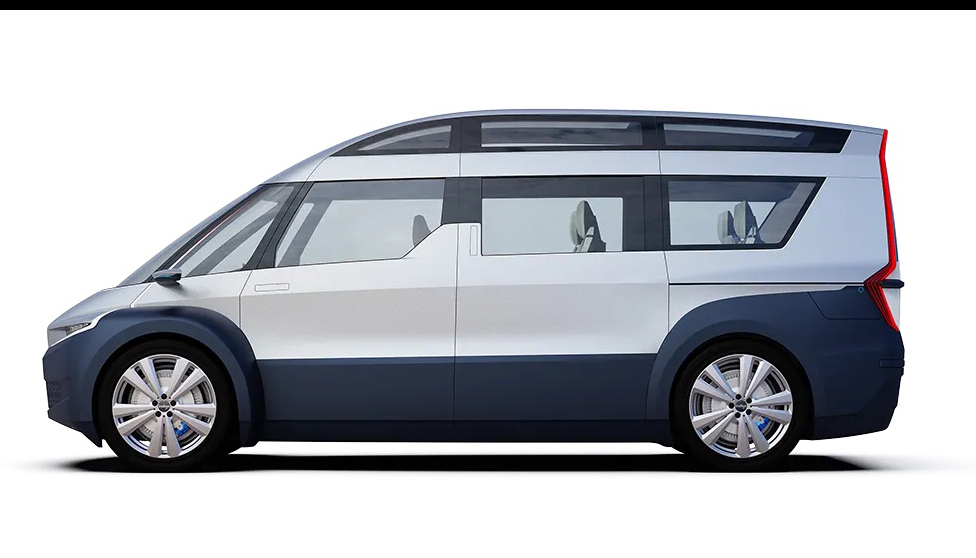The all-electric transport system of the future is a work in progress, to say the least. In fact, at the moment we stand near the beginning of the transition, and many aspects of the charged world to come are not yet clear. It may be that the EV ecosystem that we now foresee will prove to be just a transitional phase, analogous to the bandwidth-constrained internet of the early 2000s.
Be that as it may, some of the major infrastructure components of the near-future EV ecosystem are now taking shape: Level 2 charging at home and in workplaces; DC fast charging along highways; and destination charging at places like airports, hotels and supermarkets. However, there are notable pieces missing from the puzzle, and these unfilled niches in the ecosystem present opportunities for firms that can identify needs and devise solutions.
SparkCharge is based on the idea that there will be a need for portable anytime/anyplace charging on demand, and it has developed a portable, modular hardware solution.
A stirring startup story
SparkCharge’s CEO, 27-year-old Joshua Aviv, graduated from Syracuse University with a Master’s degree in Information Management and Data Science. Like the internet pioneers of the 1990s, he started a company in his dorm room, which he has now brought to the point of releasing a product. The seed that grew into SparkCharge was planted by one of Aviv’s professors, who said, “If you guys want to really change the world, you should solve the problem of electric vehicles and the need that they’re going to have for a better infrastructure. If you’re interested in learning about this, meet with me after class.”
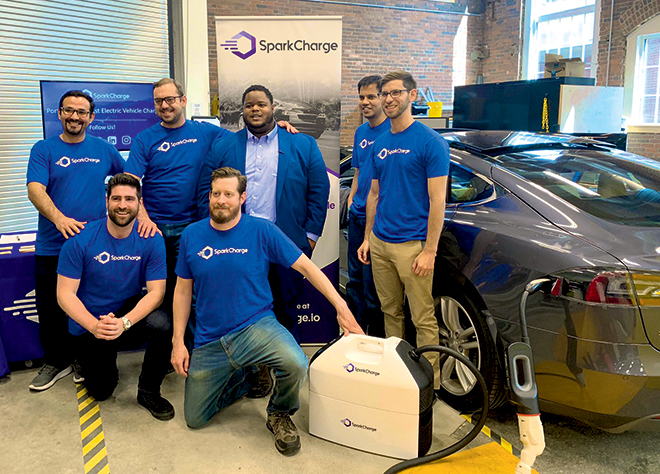

Aviv took him up on his offer, and the two were soon spending hours talking about the nascent EV industry. “After about a month and a half of that, I put together a plan to install charging stations along the New York State Thruway,” Aviv told Charged. “While looking to do that, we realized that there were other use cases than the typical situation where an EV owner has to wait at a charging station to charge. So, I started developing portable charging stations that could essentially be delivered to an electric vehicle owner anytime and anywhere they wanted; whenever and wherever they wanted.”
In 2017, Aviv met the co-founders of SparkCharge, Christopher Ellis and Richard Whitney, and that’s when the company began to take off. “We really started developing this technology that allows an EV owner to get level 3 charging delivered to them, essentially at the push of a button anywhere.”
Charge, don’t tow
A great use case for SparkCharge’s system is emergency road service. Contrary to what many non-EV-aware consumers seem to believe, “running out of charge” is not a frequent occurrence, but it will surely happen, just as ICE drivers occasionally run out of gas or find that they have a dead battery.
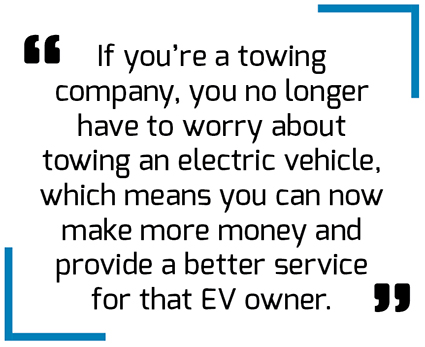

Emergency roadside services represent “a huge market that’s now going to be completely overhauled for how you should service electric vehicles.” In fact, when Aviv spoke with Charged, he was standing inside of a towing shop looking at three tow trucks (the company is one of SparkCharge’s first customers). “If you’re a towing company, you no longer have to worry about towing an electric vehicle, which means you can now make more money and provide a better service for that EV owner.”
Instead of towing an EV with a dead battery, a service provider can use SparkCharge’s system to charge it up wherever it is. “It saves time, money and manpower,” says Aviv. It’s also a much better solution for the EV driver, for whom getting towed is probably far from convenient. “You’re really dreading that, because it’s like, ‘I’ve got to get towed, but they’re just going tow me to the nearest charging station. That’s most likely a Level 2 charging station, and I’m going to have to sit there and wait to charge my car before I can continue my journey.’”
Using SparkCharge’s portable charging unit, a service provider can charge an EV at a rate of one mile per minute of charging. “So they can be there for 10 or 20 minutes, they can charge your electric vehicle very fast, and then you can go about your day and either make it back home or make it to the destination where you were originally planning to go,” Aviv explains.
“So, you provide a better service, a better experience for an electric vehicle owner when they run out of charge. The service also saves money by not having to send a big tow truck out there. They can send vans or even cars. These chargers are modular and portable, so it completely changes the dynamic of what a tow service is to an EV owner.”
Each battery module can deliver somewhere between 14 or 15 miles of range per module, depending on the vehicle. “Most companies that we’re beginning to roll these services out with are doing somewhere between three to four modules for each deployment,” says Aviv. “So they’re deploying somewhere between 30 to 50 miles [worth of charging] on each truck in their fleet.”
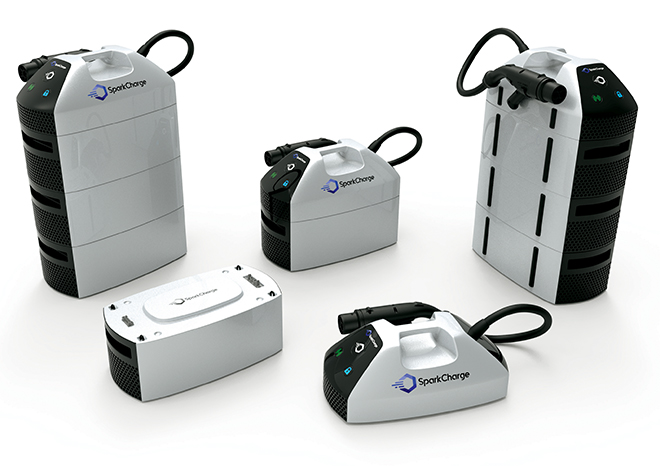

Charge anytime, anywhere
Aviv believes that there are numerous other situations in which anytime/anyplace charging could be necessary, or at least convenient. “An EV owner can be anywhere. It could be outside of Starbucks, or while they are grocery shopping. They take their phone out, and at the push of a button, a service comes and charges their car on the spot. It doesn’t have to be planned. It doesn’t have to be an emergency. This is essentially on-demand convenience charging where the EV owner gets range delivered wherever they want it.”
The service could also work with personal assistants such as Amazon, Alexa, and Google Home. “An EV owner is sitting on the couch, and they can say, ‘Okay, Google. Bring me 100 miles of range.’ Any service that’s hooked up to that command is going to bring them range right away.”
One of the thorniest problems in the infrastructure world today is the challenge of providing charging for apartment residents and others who don’t have the option of installing chargers at their homes. For some, SparkCharge could be a solution. “You can simply have [charging] delivered to an apartment complex while sitting on the couch,” says Aviv. “You can order a charge for your car the same way that you would order a pizza to your front door.”
“There’s also a service that we call concierge charging,” says Aviv. “Let’s say we’re driving from LA to San Francisco. Instead of [charging at a highway rest stop] I can have a service meet me along my journey. I don’t have to worry about finding my next charging station, because they’re going to be waiting for me 100 miles down the road. They charge my car, and we both go our separate ways. Now I don’t have to worry about the planning and logistics of [charging]. I can stay on my direct path and have that service meet me where I need to be or where I’m driving.”
“Those are just a couple of cool new ideas that we’re starting to see pop up,” says Aviv. “The use cases for the product just keep growing, because there’s a limitless number of ways that you can now charge an EV, and a limitless number of places that the EV can be charged. I think the product has the potential to change the way that people perceive EVs and charging. It’s going to tear down a lot of the limitations of owning an electric vehicle.”
After a couple of years of development, SparkCharge has just launched its first product commercially. “We’re working with some of the largest OEMs in the country, and some of the largest utilities in the world,” says Aviv. “We’re getting overwhelming response to the product. A lot of EV owners are hitting us on our Facebook page and our website and asking, ‘Where can we get this service, or where can we get this unit?’”
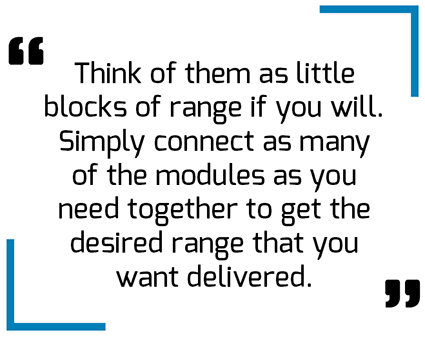

Putting the pieces together
“The hardware is essentially a powerful, yet compact Level 3 charger that is modular,” Aviv explains. “So, if one EV owner says they want 20 miles, and another EV owner says they want 30 miles, then essentially the service provider that is bringing it out decides how much range they’re going to bring to the EV owner. They do this by connecting to modular battery packs. Think of them as little blocks of range if you will. Simply connect as many of the modules as you need together to get the desired range that you want delivered.”
The top block includes the power electronics. “They’re surprisingly light-weight. The top half is only around 20 pounds, and the bottom half is only around 45 to 50,” says Aviv.
Cable lengths and other parameters are completely customizable. “Most customers only need about six feet of cord, because they’re essentially setting the unit on the ground, or on the curb, or on the sidewalk right next to the car. Some customers need a longer cable so they can run it directly from a truck or a car into the EV. We work with them to give them the length of cord that they need.”
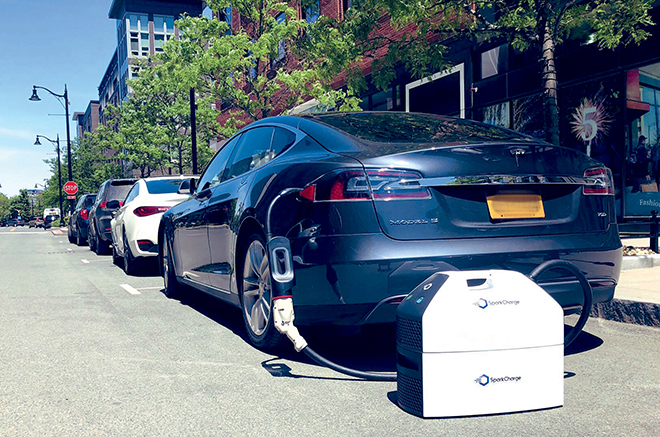

The unit can be recharged overnight, or whenever there’s downtime. “You can plug it into a regular wall outlet,” says Aviv. “That’s the easiest way to do it, and we provide that recharger to the company.”
SparkCharge is currently offering CHAdeMO-compatible units, and will have SAE Combo units available “in the next couple of months.”
Aviv’s plan is for SparkCharge to work with partners who will use its system to provide services to EV drivers. “Our business model right now is B2B,” he says. “We provide the hardware, the software, and the maintenance for the unit – we provide that to companies that want to go out and service electric vehicle owners.”
Some of these partners are existing companies. “We have some of the largest OEMs in the world that are starting to incorporate this into the services that they’re going to be offering to EV owners. We’re launching now in California, and we’ll be rolling out nationwide with our partners this year.” Aviv expects to begin showcasing its partnerships soon.
This article appeared in Charged Issue 44 – July/August 2019 – Subscribe now.



